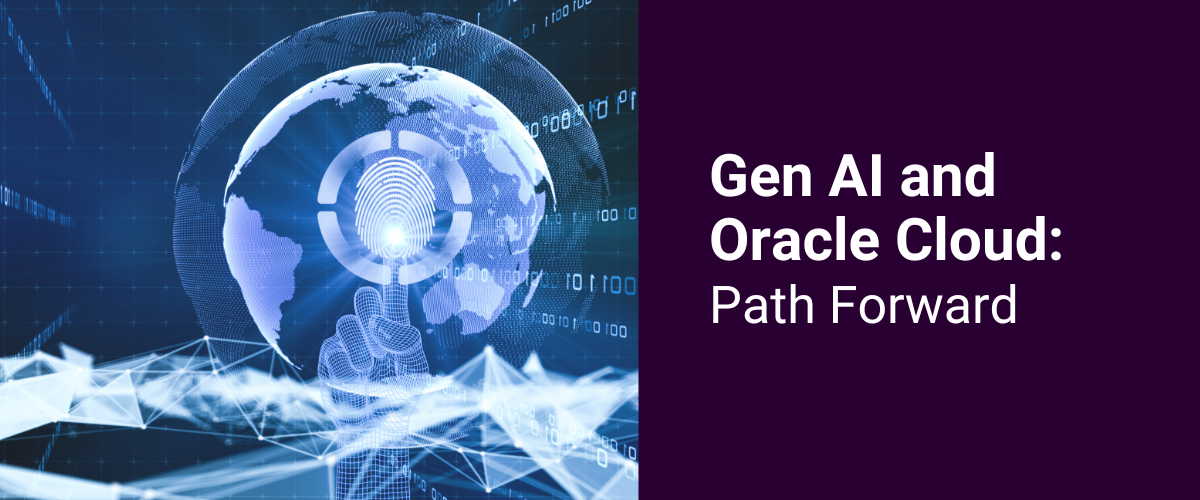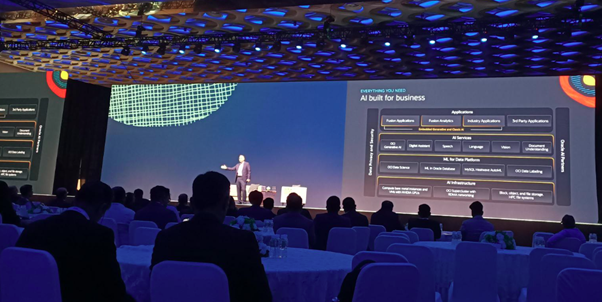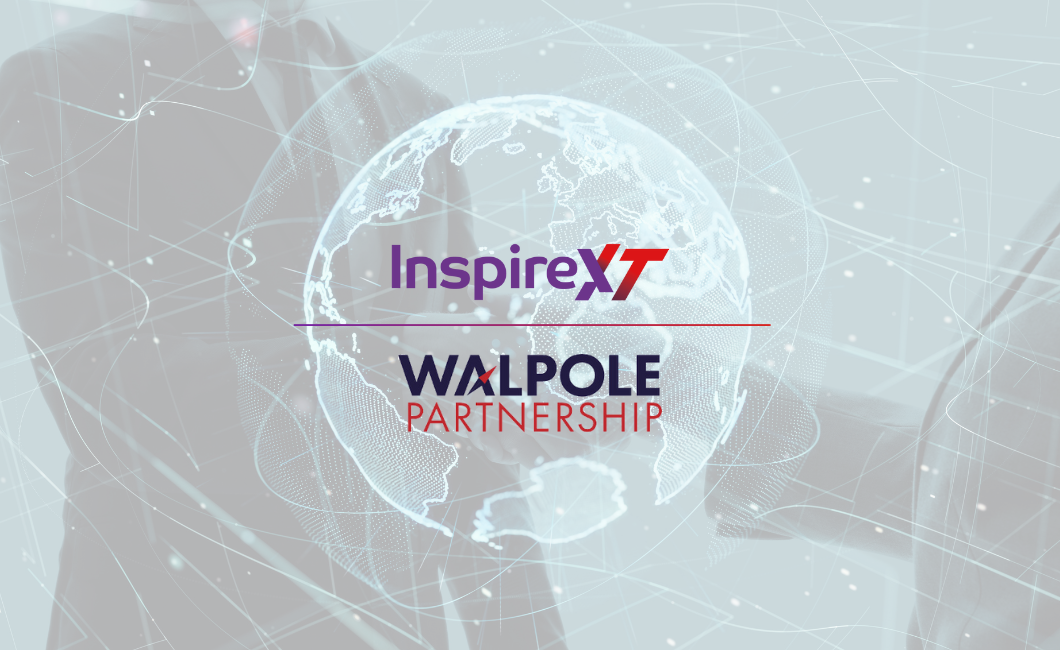Gen AI and Oracle Cloud – Path Forward
- Ashwin Lakshman

What if you could ask Oracle Cloud to “find the history of interactions with the suppliers, with whom we have BPAs in place, find if there are any expiries in them, explore the contacts at the suppliers and draft emails for the renewals” and it gives you the email draft in no time. Sounds too good to be true, isn’t it?
Our team participated in the Oracle Cloud World Tour 2024 held in Mumbai on 14th February 2024. We saw how Oracle is incorporating it in their applications and processes, while the last couple of years have seen AI and Gen AI emerging as the next frontier in technology.

What does Gen AI have to do with Enterprise Applications?
Gen AI, or Generative AI, refers to the next generation of artificial intelligence that is characterized by more advanced capabilities, including natural language understanding, contextual reasoning, and autonomous learning. Gen AI is increasingly being integrated into Enterprise applications to enhance functionality, improve user experience, and drive business outcomes. Here are several ways Gen AI can help ERP applications:
- Natural Language Processing (NLP): Gen AI-powered ERP applications can understand and process natural language inputs, enabling users to interact with the system using voice commands, chatbots, or text-based queries. This simplifies user interactions, streamlines data entry, and enhances accessibility for non-technical users.
- Predictive Analytics: Gen AI algorithms can analyse vast amounts of data stored in ERP systems to identify patterns, trends, and anomalies. By leveraging predictive analytics, ERP applications can anticipate future events, such as demand forecasting, supply chain disruptions, or equipment failures, enabling proactive decision-making and risk management.
- Automated Process Optimization: Gen AI can automate routine tasks and workflows within ERP systems, optimizing business processes and reducing manual effort. For example, AI-driven algorithms can automatically route purchase orders for approval, suggest optimal inventory levels based on demand forecasts, or dynamically adjust production schedules in response to changing conditions.
- Personalized Recommendations: Gen AI algorithms can analyse user behaviour, preferences, and historical data to provide personalized recommendations within ERP applications. For example, AI-powered ERP systems can suggest relevant products to cross-sell or upsell to customers, recommend optimal pricing strategies based on market conditions, or propose personalized training programs for employees based on their skill gaps.
- Intelligent Insights: Gen AI can generate actionable insights from ERP data by uncovering hidden correlations, identifying root causes of problems, and recommending optimization strategies. For example, AI-powered ERP applications can identify cost-saving opportunities, detect fraud or compliance violations, or highlight areas for process improvement based on performance benchmarks.
- Continuous Learning and Adaptation: Gen AI algorithms can continuously learn from user interactions, feedback, and new data to improve their performance over time. This enables ERP applications to adapt to changing business requirements, evolving market conditions, and emerging trends, ensuring they remain relevant and effective in the long term.
- Natural Language Generation (NLG): Gen AI can generate human-like text summaries, reports, or insights based on ERP data, making complex information more accessible and understandable to users. NLG capabilities allow ERP applications to automatically generate financial reports, operational dashboards, or performance summaries in natural language format, reducing the need for manual reporting and analysis.
So, how exactly is Oracle Cloud using the above in their Applications and Processes?
We look at some of the fundamental building blocks of Oracle’s Gen AI.
- Archive Domains: These are the locations/sites/ databases where the “enterprise” data resides. It can be Oracle Documentation site, Outlook, Oracle CX, Confluence, LinkedIn, or Wikipedia. Options to include various domains in the Gen AI modelling.
- Retrieval Augmented Generation or RAG: RAG is a layer encircling the Large Language Model (LLM), that uses knowledge external to data already contained in the LLM – like the database or applications that hold HR policies, medical insurance, education policies, support knowledge base etc. This helps in copy generation, summarising, semantic search, and chat(bots).
BYO Data & Modelling: The enterprise today, can benefit from the Gen AI capabilities – where the data is available within the enterprise and the modelling is specific to the enterprise. This helps enterprises tap the potential of GenAI in newer and innovative ways.
With Cohere, Oracle’s Gen AI partner, the strategy is to embed the generative models in the applications and workflows that users use every day. Oracle expects that in the next 5 years, other verticals will evolve using GenAI. Oracle promises to provide the highest level of security, performance, efficiency, and value to its customers.
Overall, Gen AI is revolutionizing ERP applications by unlocking new capabilities, improving automation, and enabling more intelligent decision-making across the enterprise. As these technologies continue to evolve, they will play an increasingly significant role in driving digital transformation and business innovation. At InspireXT, we are excited to be on this journey and build the future of your enterprise to add immense value to your business to serve your customers better.
Request for services
Find out more about how we can help your organisation navigate its next. Let us know your areas of interest so that we can serve you better.




